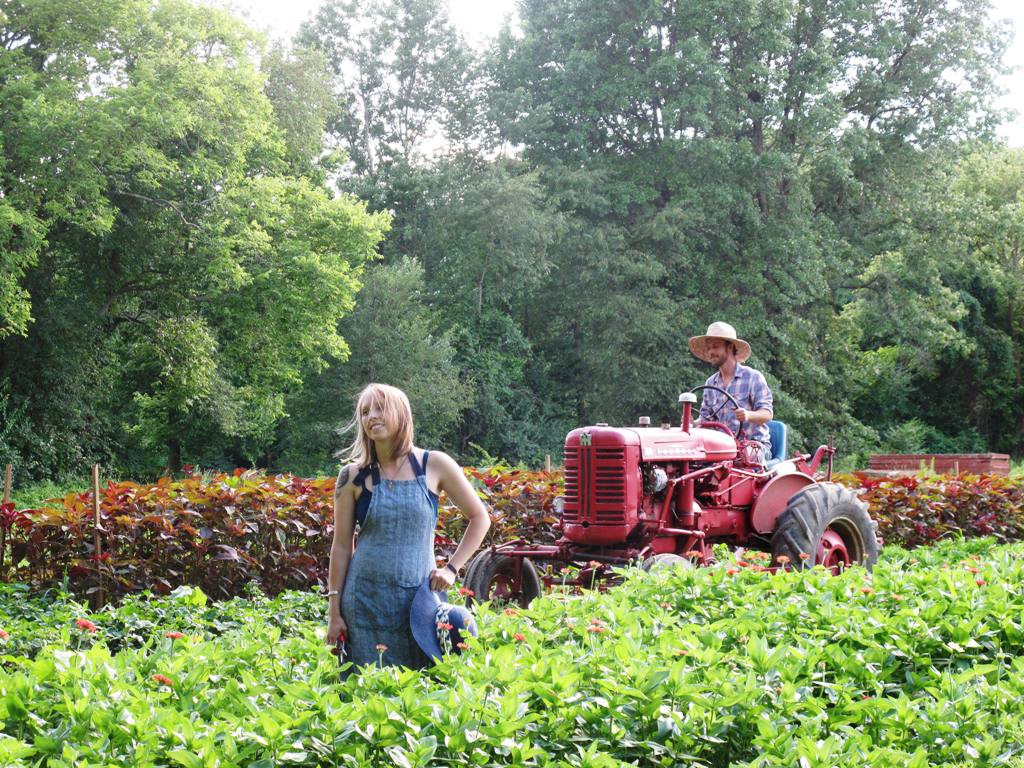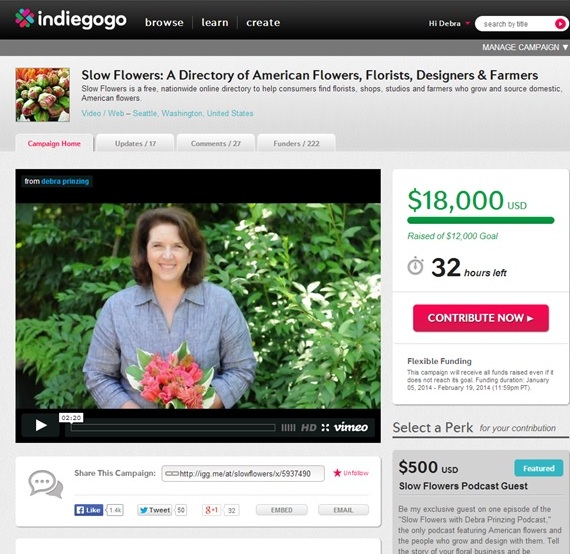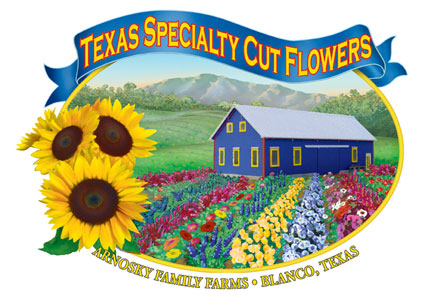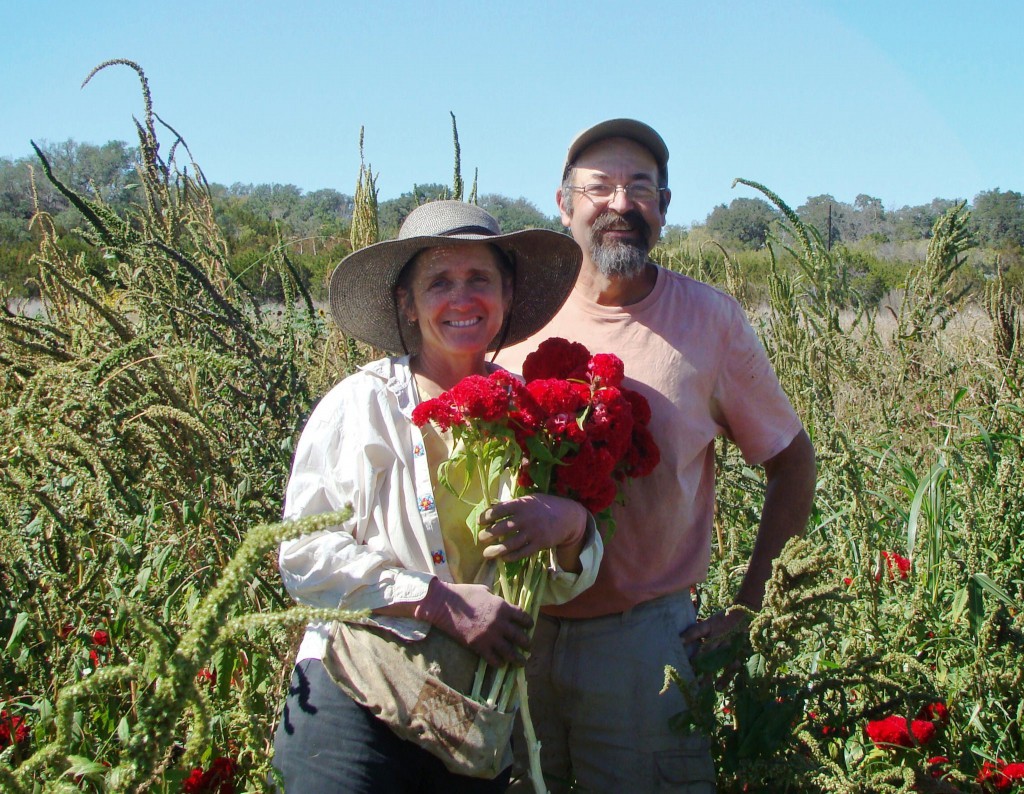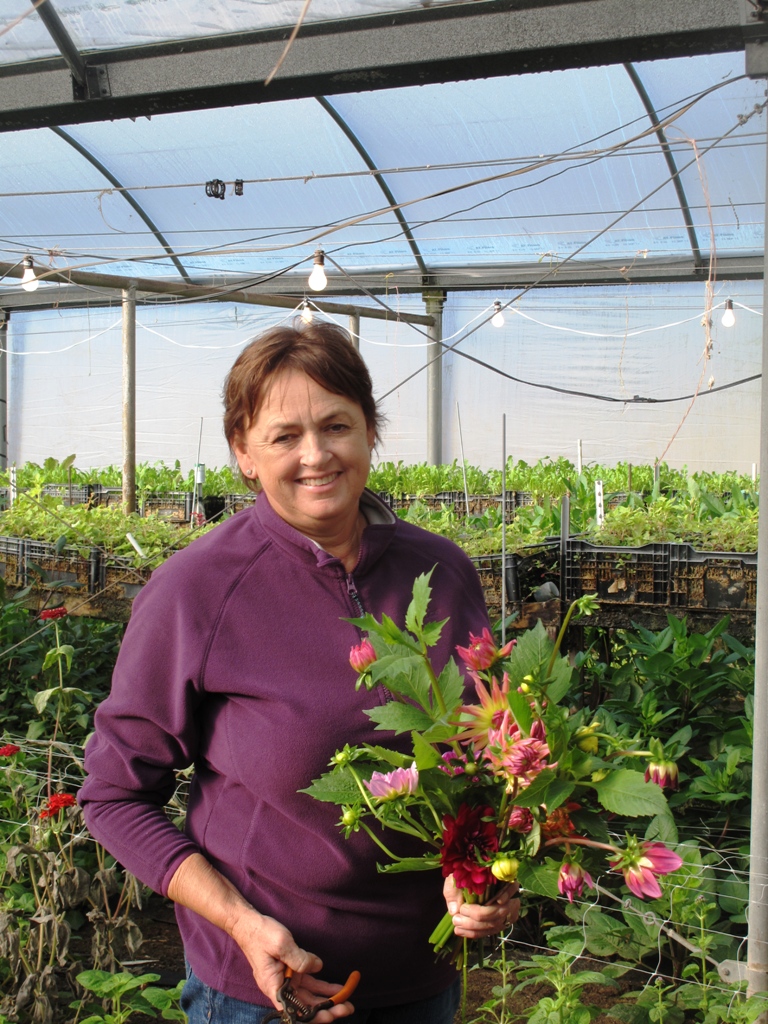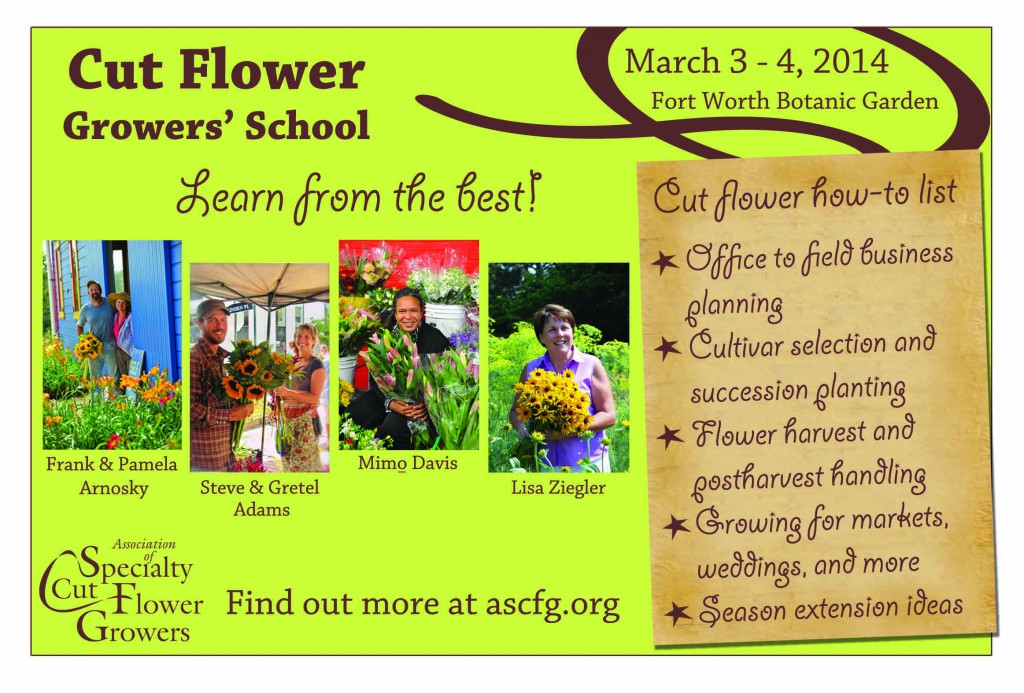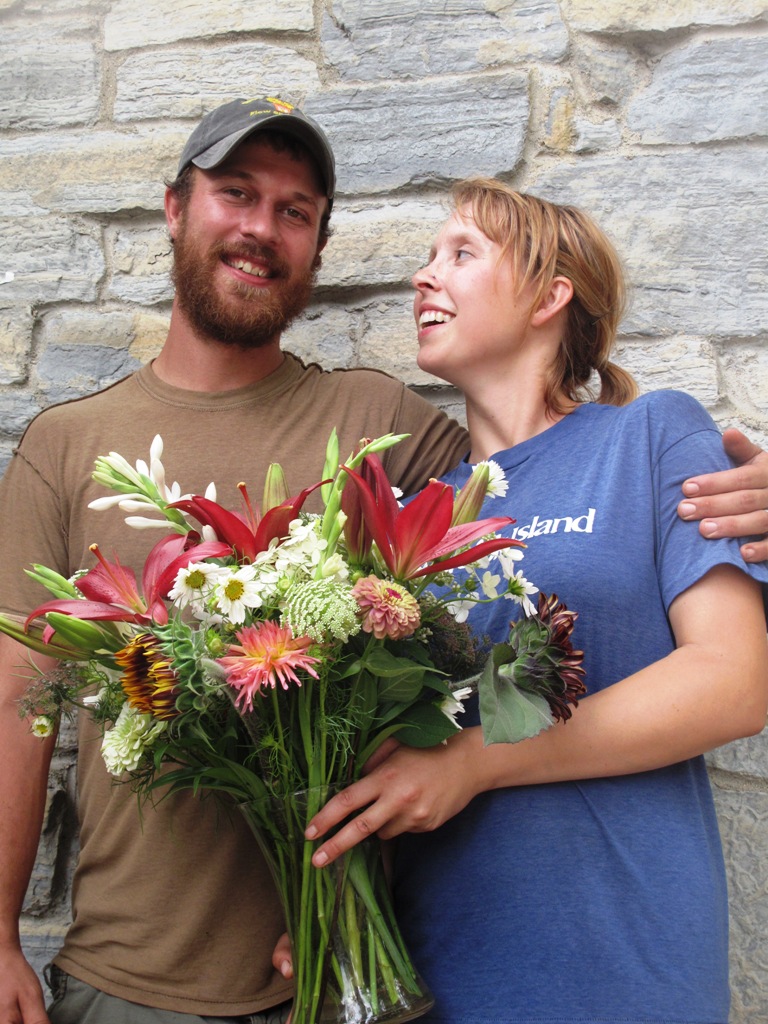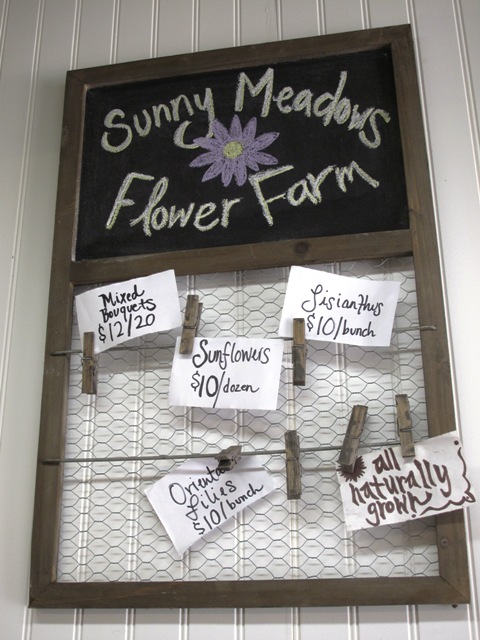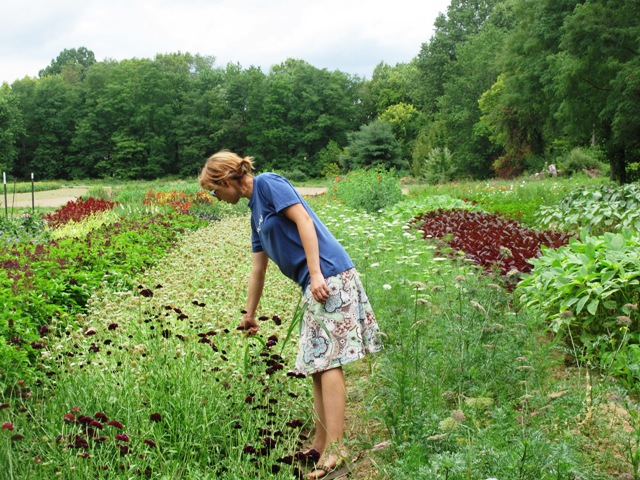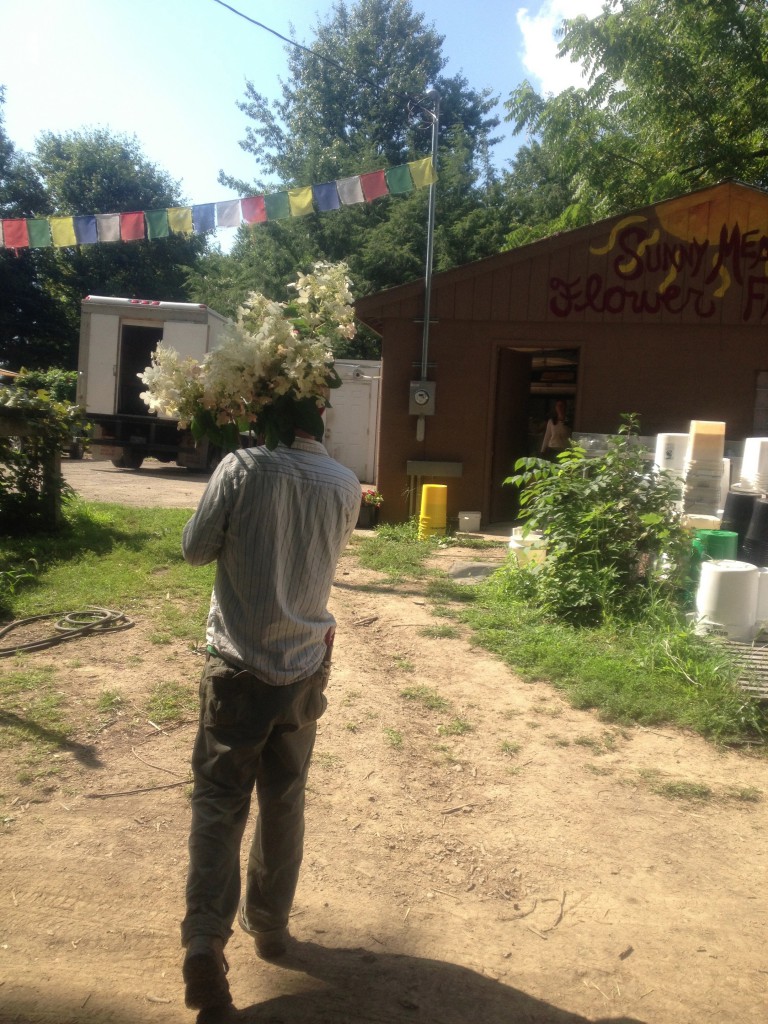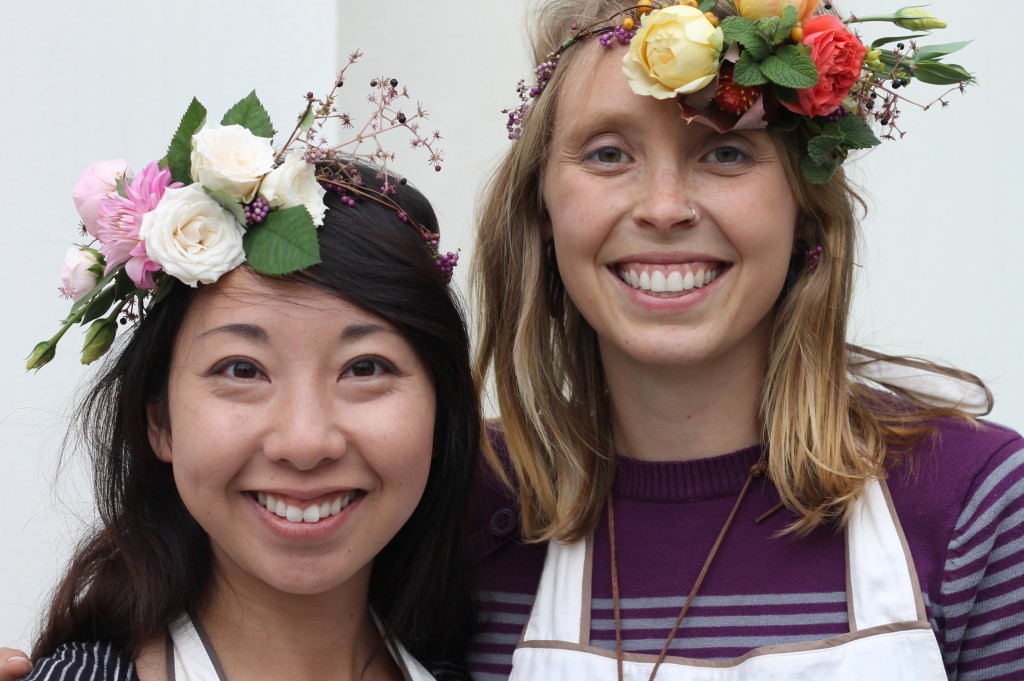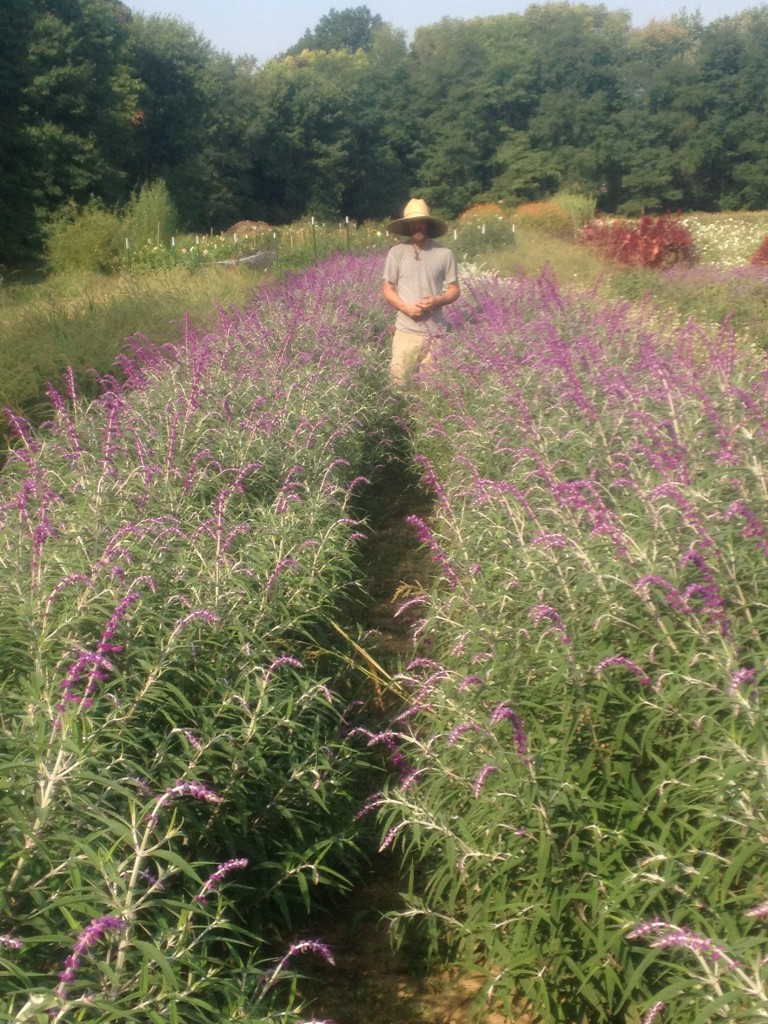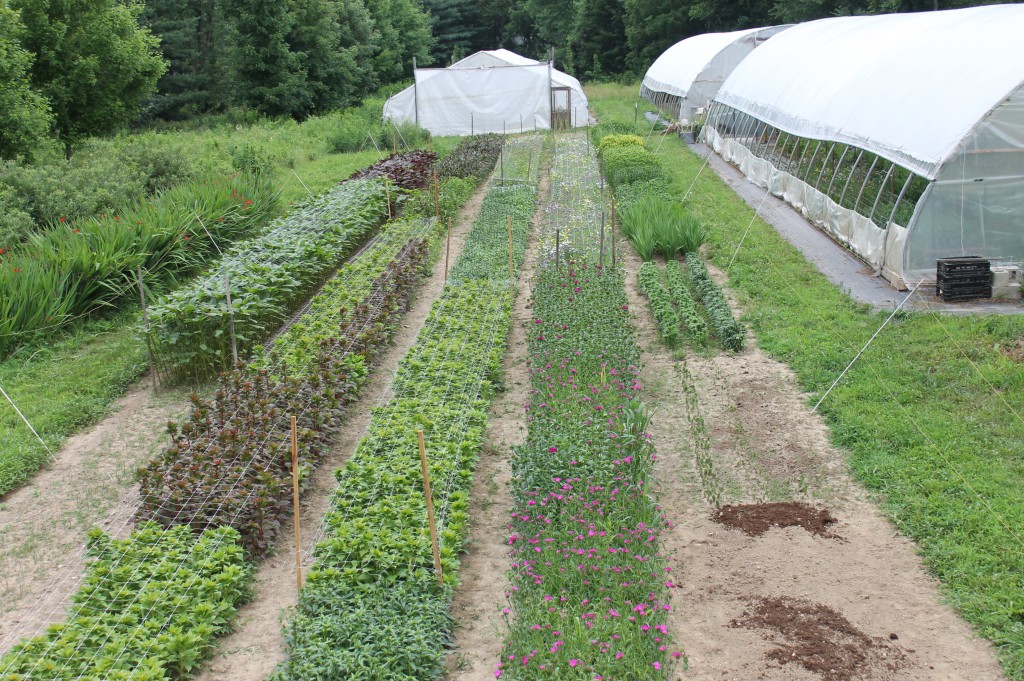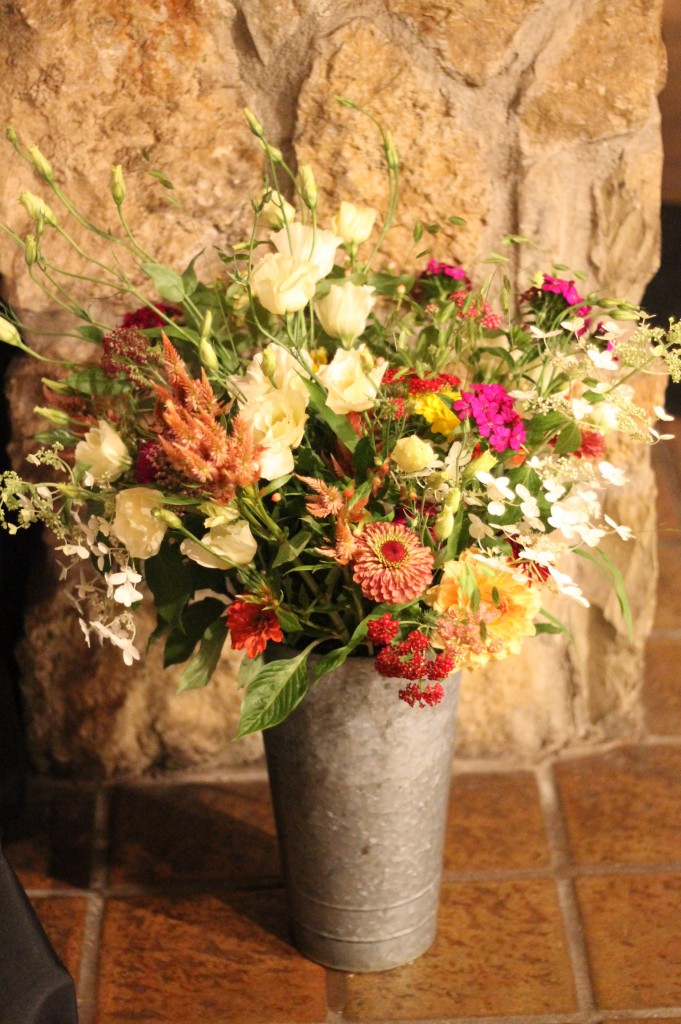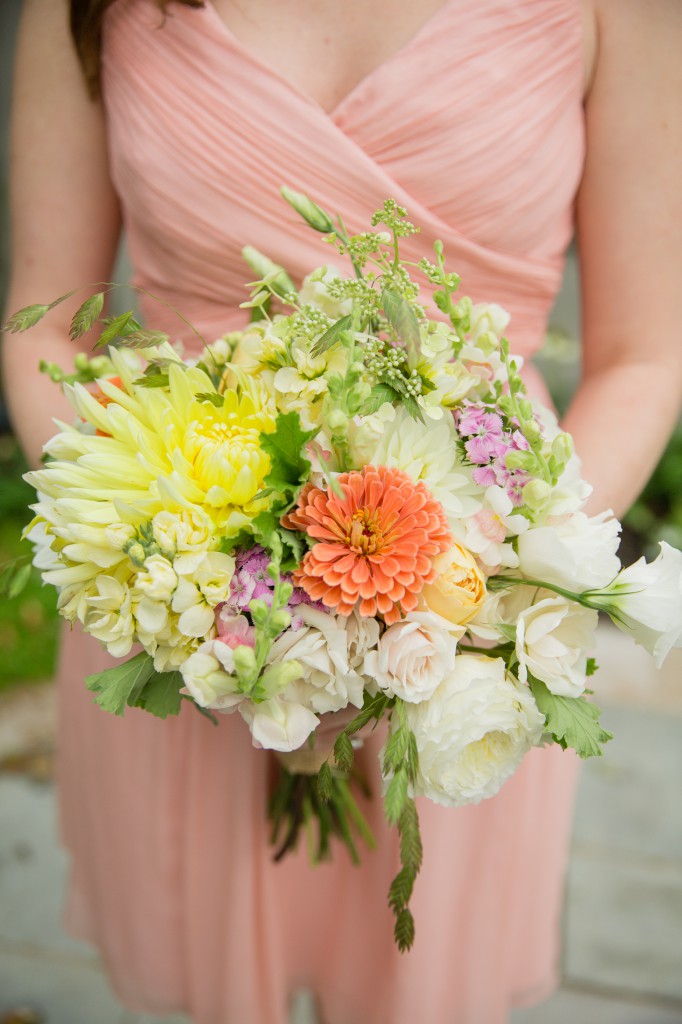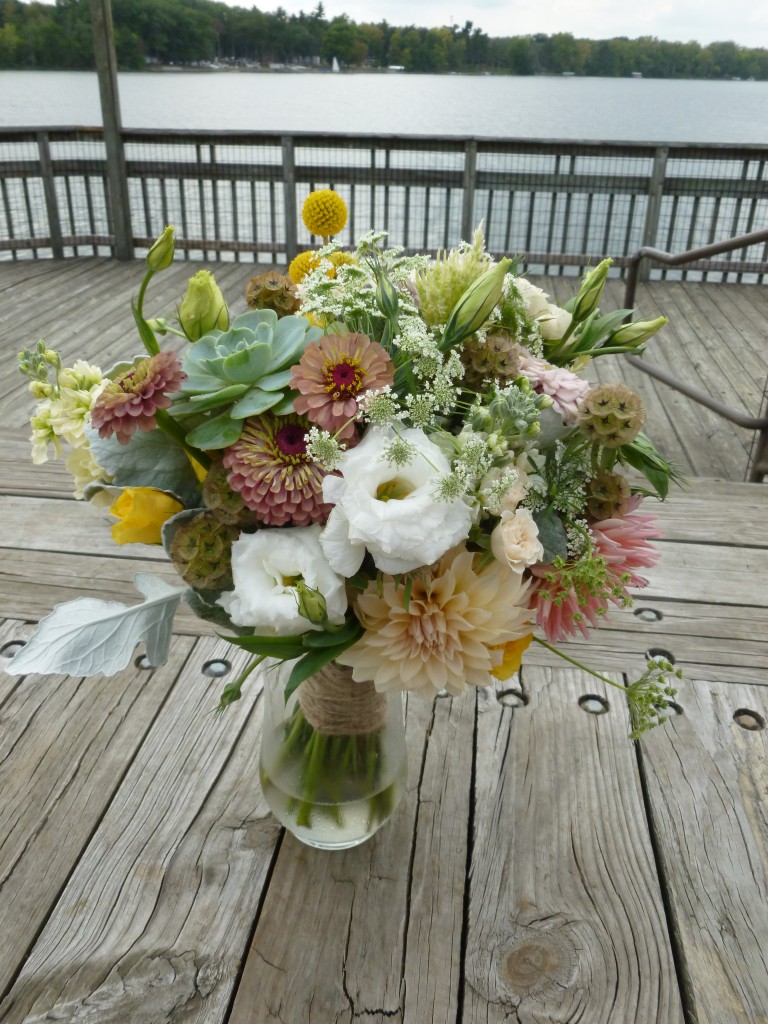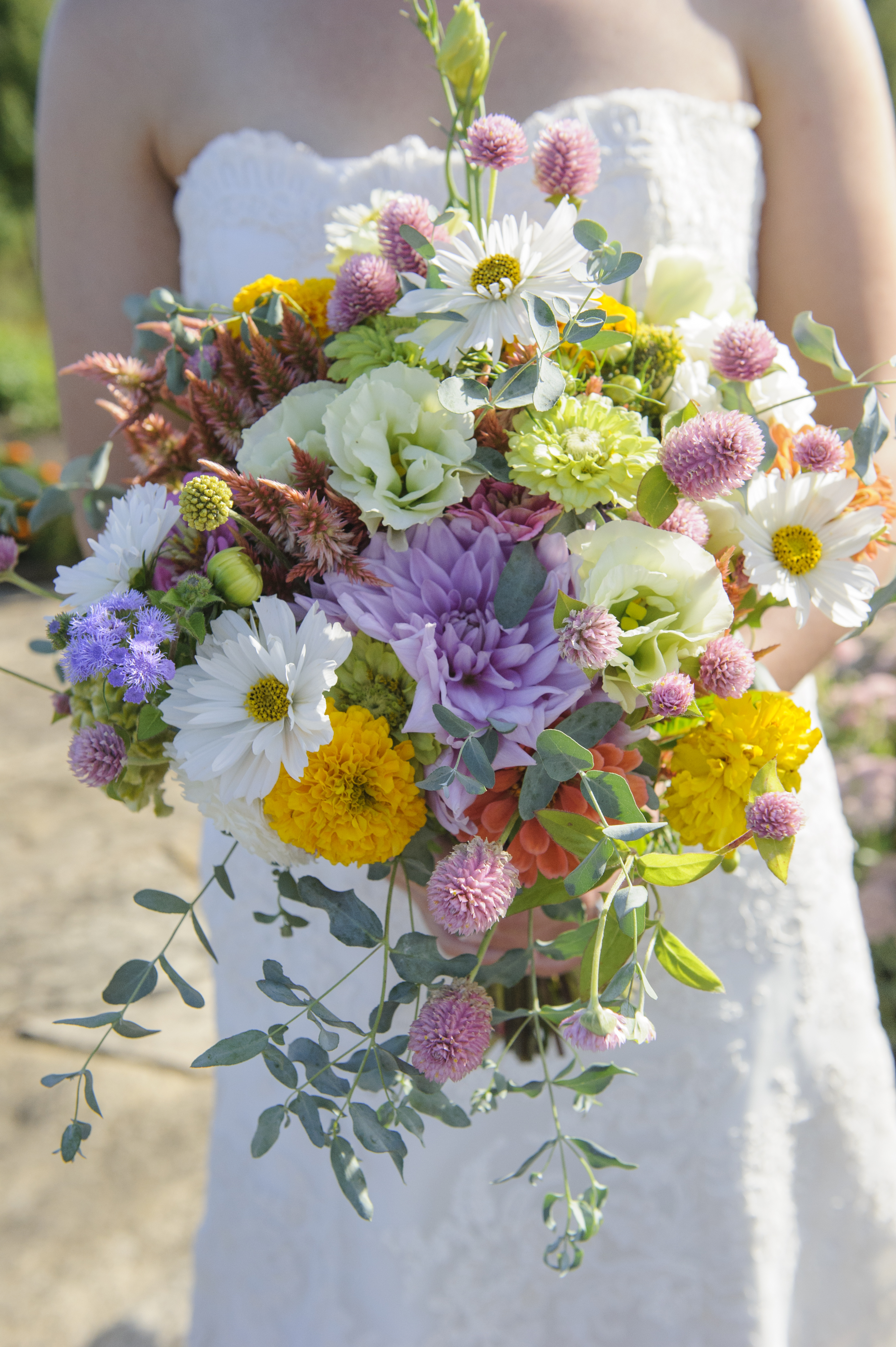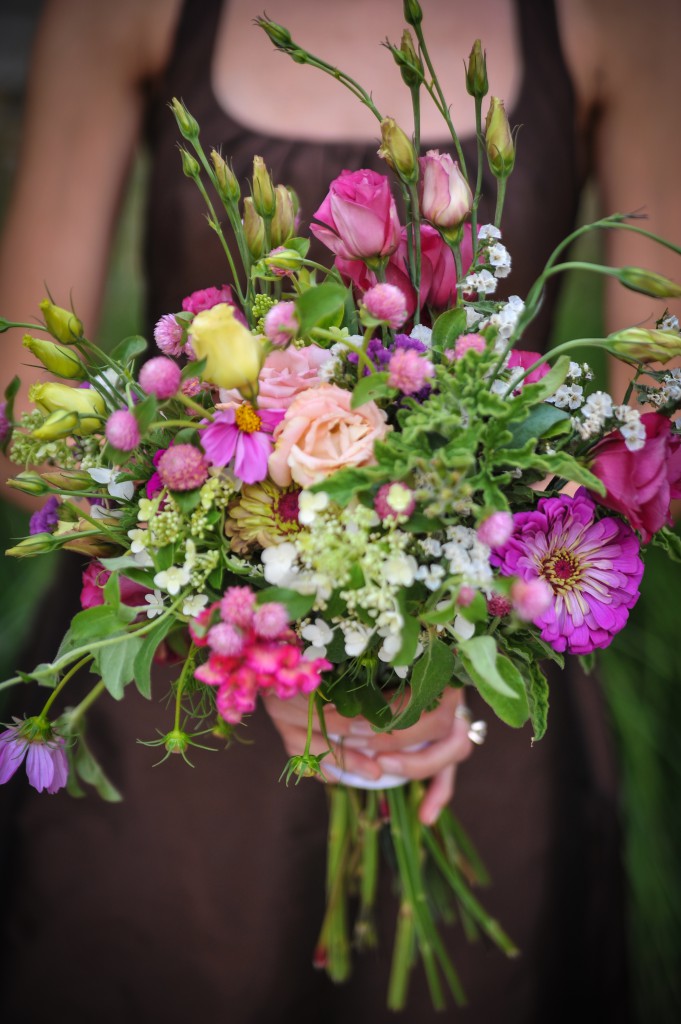Podcast: Play in new window | Download
Subscribe: Apple Podcasts | Podcast Index | RSS | More
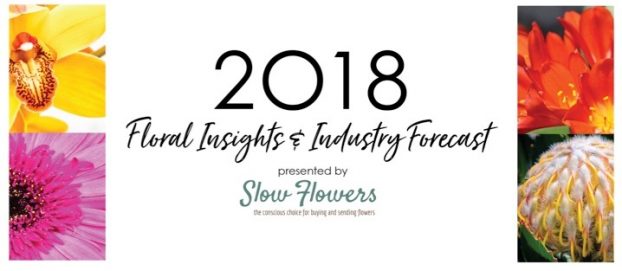 BOTANICAL DIVERSITY WITHOUT BOUNDARIES
BOTANICAL DIVERSITY WITHOUT BOUNDARIES
The fourth annual Slow Flowers’ Floral Insights & Industry Forecast for 2018
I’m excited to announce that Florists’ Review has come onboard as Slow Flowers‘ lead sponsor for 2018, signifying a strategic partnership that acknowledges the many ways the Slow Flowers approach is moving into many facets of floristry — at all points along the farm to consumer pipeline. Florists’ Review is the only independent monthly magazine for the retail, wholesale and supplier market, reaching the largest number of floral professionals in the industry. I’m honored to be a Contributing Editor producing the monthly Slow Flowers Journal section, filled with unique content reflecting the cultural shift taking place in flower sourcing and design.
Since 2014, I have drawn from input from members of the Slow Flowers Community, past guests of the Slow Flowers Podcast and other progressive leaders in the floral industry — including farmers, florists and design creatives — to “predict” the future. While by no means a statistical survey, the Slow Flowers Floral Insights & Industry Forecast serves as a botanical crystal ball to identify emerging themes affecting the domestic floral industry. I’m excited to share these key insights for the first time in print form, here in the pages of Florists’ Review’s “Slow Flowers Journal” section.
Think of these topics as your inspiration checklist for 2018 — Your Next, New and Now Report. Some of you are already engaged in these up-and-coming developments, so consider yourself on-topic!
The overarching theme for 2018 is “Flowers without Borders,” which to me reflects the disappearance of silo-like barriers that previously separated growers of flowers from sellers of flowers from designers of flowers. Thanks to technology and social media, the ability of conventional “gatekeepers” to control the flow of information and product has greatly diminished. Transparency is power, making it easier than ever before to identify sources of fresh and uncommonly beautiful flowers and foliage. So here’s to a new floral landscape where accessibility is the driving force.
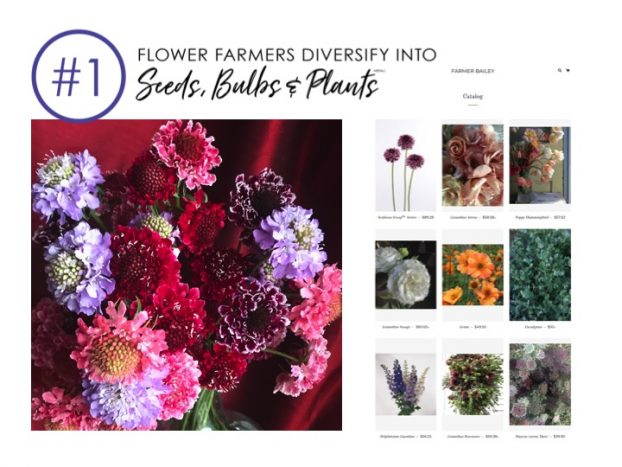 #1 Flower Farmers Diversify into Seeds, Bulbs and Plants
#1 Flower Farmers Diversify into Seeds, Bulbs and Plants
Beyond selling their crops to wholesale, retailer and independent florists, entrepreneurial flower farmers are finding new ways to turn expertise into cash flow. This phenomenon has moved far beyond seed-swapping and informal exchanges of plant cuttings.
One story of diversification comes from Bailey Hale of Ardelia Farm + Co. in Irasburg, Vermont. A trained horticulturist and two-time Philadelphia Flower Show gold medal floral designer (through his former studio MODA Botanica), Bailey now raises specialty cut flowers for farmers’ markets and florists and provides full-service wedding and event design. He turned his own hunger to find sources for uncommon “couture” flowers into a spin-off venture called Farmer Bailey, a custom plug brokerage.
When he’s not tending to his own farm, which is famous for producing sweet peas long into Vermont’s cool summer months, Bailey has become a cut flower hunter. He evaluates new varieties, contracts with a large wholesale nursery to custom grow “plugs” of must-have cultivars and markets his ever-expanding online catalog of irresistible choices to flower farmers and farmer-florists like himself. Bailey saw an un-served opportunity in the marketplace and used his connections and ingenuity to fill the demand. The result is a thriving new venture and the chance to influence the types of blooms — from Asters to Verbenas — entering the floral marketplace.
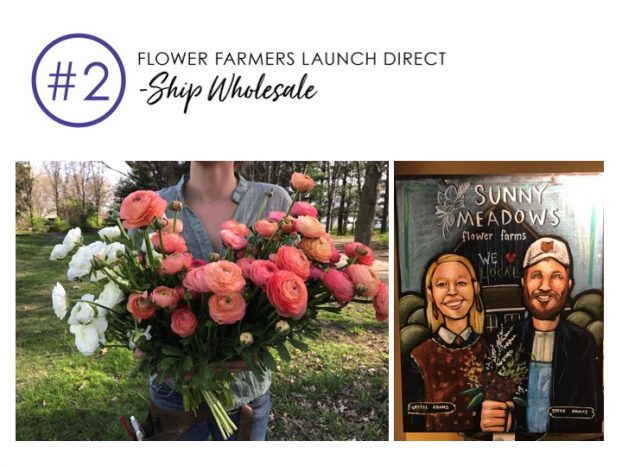 #2 Flower Farmers Launch Direct-Ship Wholesale Programs
#2 Flower Farmers Launch Direct-Ship Wholesale Programs
Shipping to designers in markets that don’t otherwise have access to their unusual flowers, Gretel and Steve Adams of Sunny Meadows Flower Farm in Columbus, Ohio, “have opened door to get our product to florists without having to physically deliver it,” Gretel explains. Recently, their farm joined a shipping cooperative to take advantage of discounted overnight rates, an essential part of keeping their pricing competitive.
After a season of testing packaging methods and learning to navigate the FedEx system, Sunny Meadows expects to unveil The Columbus Flower Company’s national wholesale flower shipping program this spring, beginning with its huge ranunculus harvest. “We’d like to be able to send flowers to designers in New York, or Los Angeles, or places that don’t have access to a good flower market,” she says.
Gretel, also a wedding and event designer, feels she can add value for florists who order from the farm. “My favorite clients are florists who give me an inspiration board and a budget and I’ll pull a mix of ingredients that I myself would use.”
In Weyers Cave, Virginia, Jessica Hall and her family run two businesses, Harmony Harvest Farm (specialty cut flowers) and Floral Genius (pin frogs and other flower frogs). Jessica also reports of plans to ship flowers in 2018, borrowing lessons learned from shipping flower frogs across the U.S. to Floral Genius’s wholesale accounts.
Harmony Harvest spent 2017 trialing packaging, stem hydration and shipping methods to determine best practices for a farm-to-florist wholesale program. “I believe there is a collective army (of smaller flower farms) that can take care of the U.S. need; they might be able to grow those flowers and see that it’s possible to ship. I’m going to figure it out and hopefully that will change the industry,” she says.
#3 Retail Garden Centers Add Floral Design Services
Last year’s Floral Insights report highlighted “Return of Brick and Mortar,” documenting a possible reversal of the decades-long decline in floral retail, as I witnessed studio florists with a distinct local and community focus open a new generation of retail flower shops. The next wave in this shift continues in retail nurseries and garden centers, which are opening or reviving in-house floral shops with a distinctly local emphasis.
Slow Flowers Journal featured The Flower Shop at O’Donal’s Nursery outside Portland, Maine — which recently introduced full-service floral design as a sister business to a 60-acre tree and shrub nursery. Manager Rayne Grace Hoke credits having a distinct aesthetic inspired by O’Donal’s extensive plant collection for much of the shop’s success.
On the opposite coast, Windmill Gardens, an independent garden center in Sumner, Washington, also debuted a new flower department. According to owner Ben DeGoede, Windmill brought floral design in-house for the first time since 2001, taking over space once occupied by a tenant and rebranding as Windmill Floral Studio. The beautiful, full-service shop has a commitment to providing only locally-grown and American-grown flowers. “The Slow Flowers movement and the buy local movement has inspired us to take floral back again,” he explains.
General manager Wendy Pedersen explains that the flower shop “wants customers to support local farmers.” There are obvious synergies for couples who book Windmill Gardens’ outdoor wedding venue and hire Windmill Floral Studio to design their flowers.
#4 Flower Farmers Shift into Retail
While it may seem “counter-trend,” a number of flower farms are opening retail spaces in prime locations where their flowers are marketed alongside related hard goods and artisan products. It’s a move welcomed by consumers who want to buy farm-direct in urban and suburban markets. I’ve identified Chicago, Boston and Albuquerque, among other cities where flower farmers have opened retail shops to sell their blooms.
In Boston, Field & Vase, a new venture of Stow Greenhouses, has opened two retail spaces at The Shops at Prudential Center, a major downtown retail hub. Barbara Rietscha and Dave Buchholz incubated their first retail venture two years ago at Boston Public Market, a year-round, indoor farmers’ market with 40 vendors and a New England-grown mandate. Success in that venue attracted the attention of developers at the tony Prudential Tower, and this past September, Field & Vase opened two locations there — a permanent kiosk in the heart of the mall’s central court and a full-service shop-studio that is large enough to accommodate custom design work, event production, client consultations and ongoing workshops.
Barbara says adding multiple retail channels to sell their farm’s value-added flowers was an intentional decision. By selling the flowers they grow direct to consumers through retail, Field & Vase enjoys larger margins and gets out of the wholesale environment dominated by price competition with imports. Additionally, at the Prudential locations, the business promotes other flower farms that aren’t set up to do retail themselves. “We source within the U.S. because we believe in local,” Barbara says. “We want to be a venue for flower farmers who don’t have retail outlets themselves.”
#5 Aromatherapy and Wellness Remedies
Botanically-inspired fragrances, body care remedies and other herbal and scented goods have a natural affinity for floral consumers, and I’ve noted some brilliant ways that florists are taking advantage of this. From developing their own candle and soap collections to offering aromatherapy-themed events, florists are tapping into ways to cross-promote flowers and aromatics.
Stacey Carlton, AIFD, of The Flora Culturist in Chicago has made the fragrance connection for her customers with an “Aromatherapy Bar” service. It’s a smart way to extend into a new revenue stream incorporated into parties and special events. Guests are invited to create a personal, custom fragrance blend — or to follow Stacey’s cleverly personalized scent recipes. From intimate gatherings like bridal showers to large interactive events, the Aromatherapy Bar gives guests a social experience and a new way to engage with fragrance.
Farmer-florist Hedda Brorstrom of Full Bloom Flower Farm in Groton, California, is a certified herbalist who studied at the California School of Herbal Studies. She extends her farm’s season by creating and selling “small batch, field to face” herbal and aromatherapy products.
Full Bloom Flower Farm’s skin care line includes rich hydrating creams made from roses, calendula and lavender grown on her farm. A rosemary hydrosol is an organic spray that can be used either on the face after sun exposure or used in cocktails after a long day of gardening. Hedda’s personal favorite product is the Injury Salve which she uses after a day of farming to soothe sore muscles. She sells her products online, alongside other farm-logo items like tank tops, sweatshirts and hats.
Flower farmers and florists alike are investing their talents in helping nonprofits and others in their communities. Floral philanthropy or “flowers with heart” efforts are inspiring, and I love seeing flowers used as a currency to change lives and advance important causes. A number of feel-good projects caught my attention in 2017 and I am certain they will continue in 2018.
The Bloom Project, profiled recently in Florists’ Review, is a 10-year-old volunteer-run program that upcycles donated flowers into bouquets for hospice and palliative care patients in Portland, Oregon.
On a national level, Christina Stembel’s Farmgirl Flowers selects and supports a monthly nonprofit partner by donating a portion of sales for a signature bouquet in its product mix.
“We started our ‘With Heart’ campaign because we wanted a way to give back to multiple organizations that are near and dear to our hearts throughout the year,” Christina explains. “It’s also a way we can support many organizations that our team members are passionate about.” Since it launched in April 2017, Farmgirl’s ‘With Heart’ program has contributed more than $70,000 to nine different charities.
I’m also impressed with charities using flower farming and floral design as a platform for change. It’s inspiring to watch nonprofit farms that help teens and adults train for the workplace or those that provide sustainable jobs for individuals with different abilities. Some notable efforts include Muir Ranch in Pasadena, WOW Farm in Oakland, Blawesome Farms in the Raleigh-Durham area, Blooming on the Inside in Portland, and other socially responsible enterprises.
The bottom line is that flowers can meet people where they are and be used as a positive tool to instigate change, stimulate progress and enhance lives.
READ MORE…










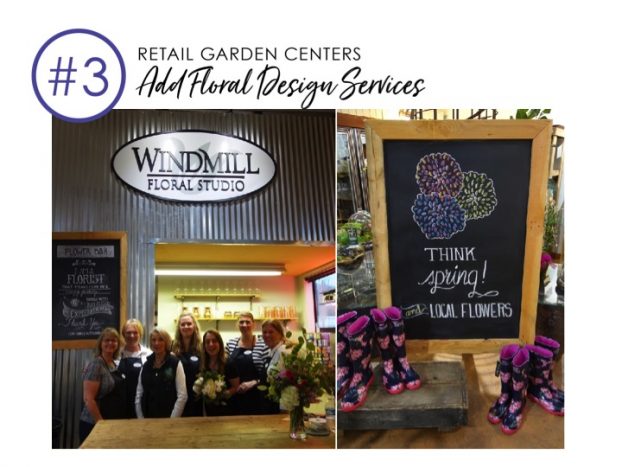
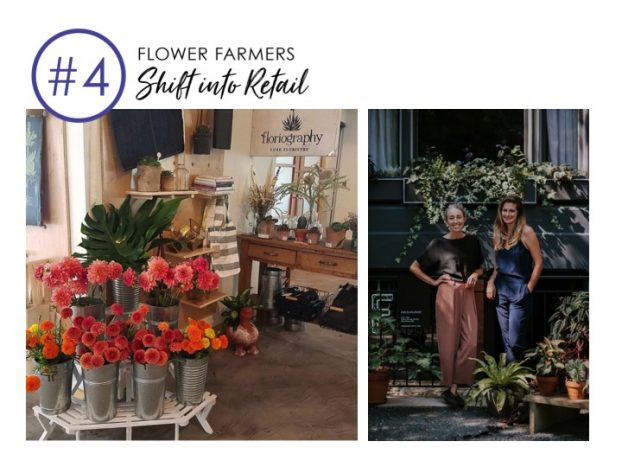
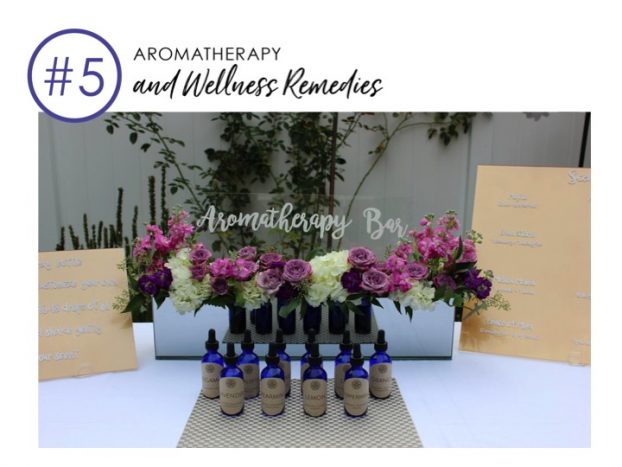
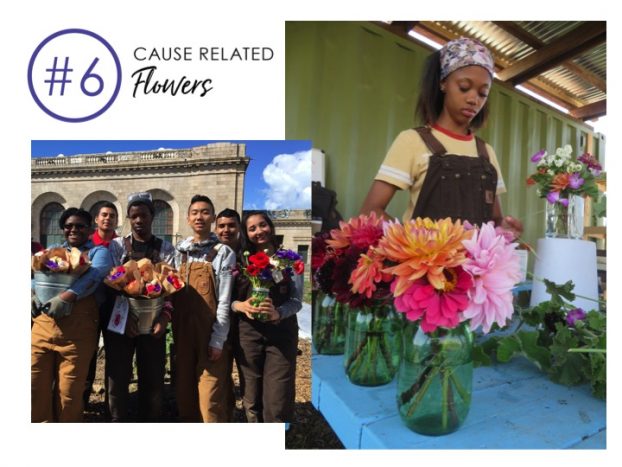

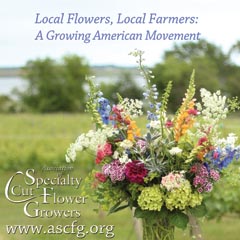
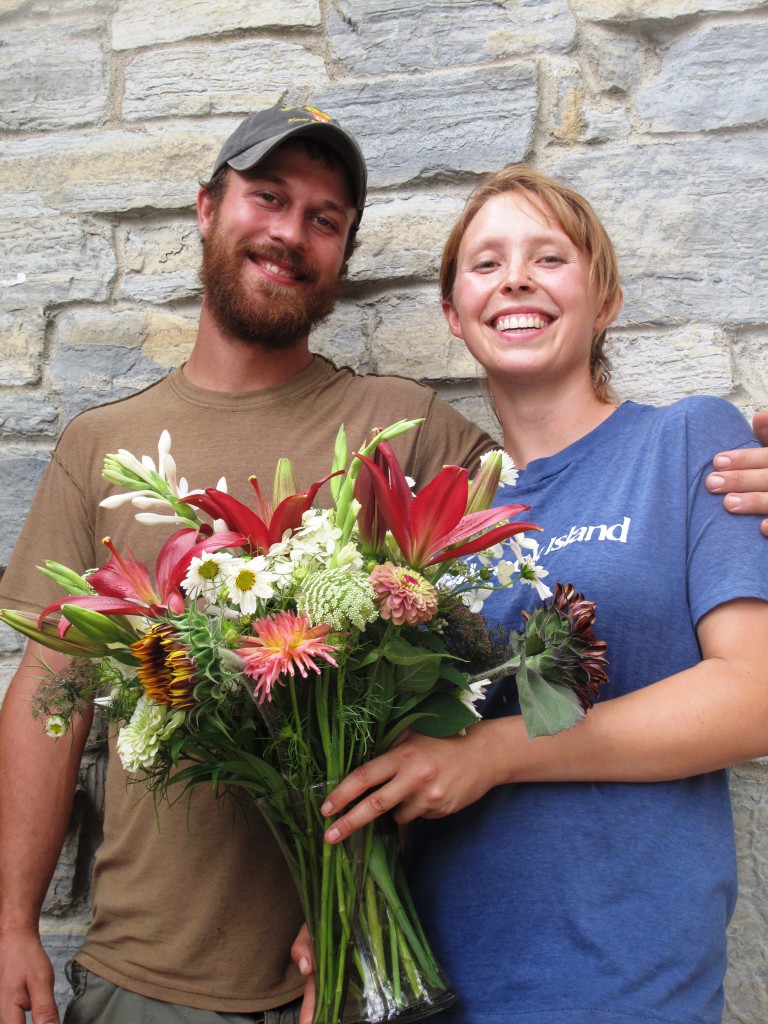 To kick off this partnership, I’ve invited two past guests of this podcast to return and share a preview of the upcoming ASCFG conference. Gretel and Steve Adams are owners of
To kick off this partnership, I’ve invited two past guests of this podcast to return and share a preview of the upcoming ASCFG conference. Gretel and Steve Adams are owners of 